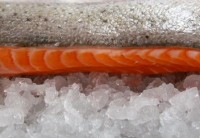The four Waterkeeper Alliance organizations in Washington, including Columbia Riverkeeper, Spokane Riverkeeper, Puget Soundkeeper Alliance, and the North Sound Baykeeper, are working together to strengthen toxicity standards in the waters of Washington State. The Huffington Post recently featured a great article by Spokane Riverkeeper, Bart Mihailovich. Check it out:
http://www.huffingtonpost.com/bart-mihailovich/fish-consumption-rate_b_1607311.html.
Washington State may be called the Evergreen State, but the state's rich heritage of fish and shellfish is critical to our economy, culture and health. From tribal subsistence fishing in Eastern Washington to a thriving shellfish industry in Puget Sound; from sport fishing on the mighty Columbia River, to legendary steelhead trout of the Olympic Peninsula, fish and those who thrive on them are as much a part of Washington as all our fir trees and glaciers combined.
But there is a hidden danger in these fish, and right now we have the opportunity to make sure that fish and shellfish are healthy for future generations to eat.
Even a quick glance at our state's water quality standards for toxic pollution shows a gross inequality between the weak limits on toxic pollution and the strong value of we place on serving fish for our families. Washington currently has some of the weakest limits on toxic pollution in the nation, in part because we use a low estimate of how much fish people eat every day.
The problem is this: in a state where people have subsisted primarily on salmon and seafood for thousands of years, the state assumes people only eat a cracker-sized portion of fish per day. 6.5 grams, to be exact.
Why does a low fish consumption estimate matter? Because each of our pollution control regulations is tied to human health, and the human health threshold for cleanup or control is tied to the consumption rate. Continue Reading
View our Fish Consumption Rulemaking Q & A Fact Sheet
Learn more about our work to strengthen water quality laws in the Columbia Basin



